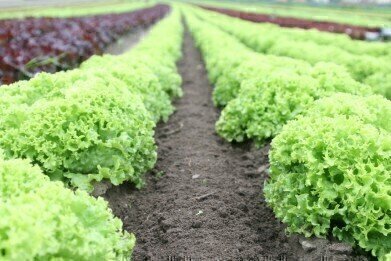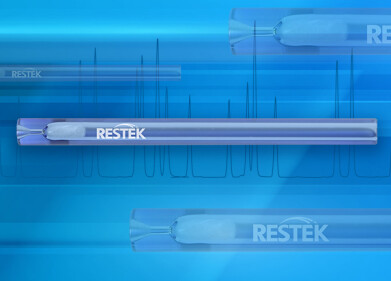Environmental Laboratory
Nanotechnology May Be Able to Help Grow More Food with Less Energy and Water
Jul 01 2016
In 1996, the population of planet Earth stood at 5.68 billion. In the intervening 20 years, this has swelled to 7.4 billion and is projected to break the nine billion mark by 2040. As concerns about the dwindling resources on our planet continue to escalate, it has become clear that we will need to develop ways in the near future to produce more energy, food and water with less resources.
One such solution to this problem which is undergoing heavy research right now is nanotechnology. Essentially the creation and utilisation of ultra-small particles, nanotechnology can have a wide range of applications – including in agriculture and the food production industry.
What is nanotechnology?
Nanotechnology is the manipulation of tiny particles which must have at least one dimension smaller than 100 nanometres. One nanometre is equivalent to a billionth of a metre, which might sound confusing and virtually impossible to get your head around.
To try and simplify things, a single sheet of paper normally spans about 100,000 nanometres in thickness. Therefore, nanotechnology deals with particles that are at least 1,000 times thinner than paper in one dimension.
The added surface area created by the tininess of these dimensions means that nanoparticles can take on special properties, artificially engineered by scientists. They can influence all manner of biological processes – including the development of organisms and plants.
Applying nanotechnology to agriculture
A key area of world industry is agriculture and farming. At present, many natural resources (such as land, water, energy and chemicals) go into the fertilisation process to try and maximise yield year-round. This not only consumes a lot of vital reserves but also generates much waste, some of which can lead to pollution.
The use of metal oxide and metal nanoparticles can be beneficial to the farming process since it can be sprayed directly onto leaves (thus avoiding contamination of soil) in miniscule amounts and absorbed more readily by the plant. This has the double-edged advantage of consuming less resources whilst simultaneously reducing waste and pollution.
A recent study showed that the use of zinc nanoparticles on mung beans (an agricultural product often cultivated for food in Asia) held a number of benefits for the plant. Not only did the zinc nanotechnology allow the plant to soak up more nutrients from the soil (in particular, phosphorous), it actually increased biomass by 27% and bean yield by 6%.
Meanwhile, a separate study showed that the use of zinc oxide and titanium dioxide nanoparticles to tomatoes gave them an added nutritional boost, as well. Levels of lycopene (a naturally-occurring antioxidant) jumped up from anywhere between 80% to 113%, showing huge potential for the manipulation of nutrition in future produce.
Further research needed
Of course, as with any burgeoning area of scientific research, more tests will be needed to determine the precise effects of nanotechnology on the human constitution and its long term effects on our planet. Back in 2010, the introduction of the Responsible NanoCode attempted to lay down some ground rules for the process, though even six years on there is much we need to learn about this exciting but still undeveloped technique.
The shape, solubility and size of nanoparticles affect how they behave inside our bodies, as do their crystal phase, composition and the dosage to which we are exposed and for how long. It’s unclear exactly how they can affect life in the long run, so contingency plans will need to be formulated to deal with any complications down the line.
Furthermore, sustainable methods of manufacturing and utilising nanoparticles will also be required. However, the early indications are that despite its tiny stature, nanotechnology could play a huge part in safeguarding the future of the human race.
Digital Edition
IET 34.2 March 2024
April 2024
Gas Detection - Biogas batch fermentation system for laboratory use with automatic gas analysis in real time Water/Wastewater - Upcycling sensors for sustainable nature management - Prist...
View all digital editions
Events
Apr 22 2024 Hannover, Germany
Apr 22 2024 Marrakech, Morroco
Apr 23 2024 Kuala Lumpur, Malaysia
Apr 23 2024 Kintex, South Korea
Apr 23 2024 Edmonton, AB, Canada


















